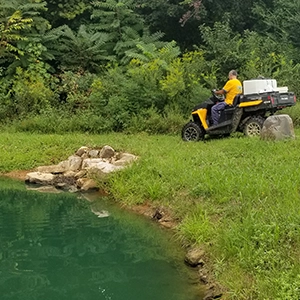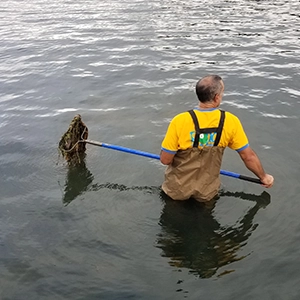The Best Solutions to Control Pond Weeds & Algae as Summer Approaches

WHATS IN THIS BLOG?
o How do you control pond weeds & algae?
o The Reality of Aquatic Weed Control with chemicals
ο Why Use Chemical Control?
ο How Long Does Chemical Control Last?
ο Choosing the Right Herbicide for Aquatic Weeds
ο Best Practices for Using Herbicides
ο Additional Methods for Controlling Pond Weeds and Algae
ο Get Expert Help for Your Pond
ο Recommended Next Steps:
ο Control Weeds and Keep Your Pond Healthy
How Do You Control Pond Weeds & Algae?
Aquatic weeds are a common challenge for pond owners in North Carolina, whether managing a farm pond, a stormwater retention pond, or a private lake. The persistent growth of these weeds can disrupt ecosystems, impede recreational activities, and even affect property value. While eliminating aquatic weeds isn’t possible, effective control methods can keep them in check and maintain the health and usability of your water body.
You’re in the right place if you’re wondering how long chemical control methods last and the best strategies for managing aquatic weeds. This guide will walk you through everything you need to know.
The Reality of Aquatic Weed Control With Chemicals
It’s important to set realistic expectations. To control pond weeds & algae you need to set up an ongoing process, not expect a one-time fix. Factors like the type of weed, the pond’s condition, and ongoing maintenance will influence how long chemical control lasts and how effective it is.
The goal isn’t complete removal (which is often impossible and detrimental to the environment) but rather maintaining a balance to prevent overgrowth. With the right approach, you can significantly reduce the weeds while keeping the ecosystem intact.
Why Use Chemical Control?
Control Pond Weeds & Algae with Herbicides and Algaecides is an effective method for managing aquatic weeds. It provides:
- Targeted Treatment: Specific herbicides are designed to address certain types of aquatic weeds, minimizing harm to other plant and animal species.
- Quick Results: Herbicides often reduce weed growth within days or weeks.
- Ease of Use: With proper instructions, many herbicides are straightforward to apply to ponds.
However, use responsible herbicide use to avoid negative environmental impact. Always follow state regulations and guidelines to ensure safety and effectiveness.
PRO TIP
Always read the application directions thoroughly, wear gloves, and keep chemicals in a safe storage area away from children. We recommend working with a certified, trained pond specialist to help you safely and correctly apply weed control chemicals.
View our pesticide applicator
license: 026-30576
How Long Does Chemical Control Last?
The longevity of chemical treatments depends on several factors:
- Type of Herbicide Used: Some herbicides provide short-term control, lasting a few weeks to months, while others have residual effects that can last up to a year.
- Target Weed Species: Certain weeds require repeated treatments due to their growth patterns or resistance to specific herbicides.
- Pond Conditions:Factors like water temperature, nutrient levels, and water flow impact how well herbicides perform.
- Seasonality: Applying herbicides during the active growing season of weeds (spring and summer) ensures maximum effectiveness.
On average, a properly applied chemical treatment can last anywhere from three months to a full growing season. Regular assessments will help identify when reapplication is necessary.
Choosing the Right Herbicide for Aquatic Weeds
Not all herbicides are created equal. Choosing the right one depends on the species of aquatic weed in your pond. Here are a few common weeds common to ponds in North Carolina. For help with controlling pond weeds or algae, give the Pond Management experts at Pond Lake Management a Call or complete our Pond Assessment form.
Hydrilla
Noxious weed found in 17 states
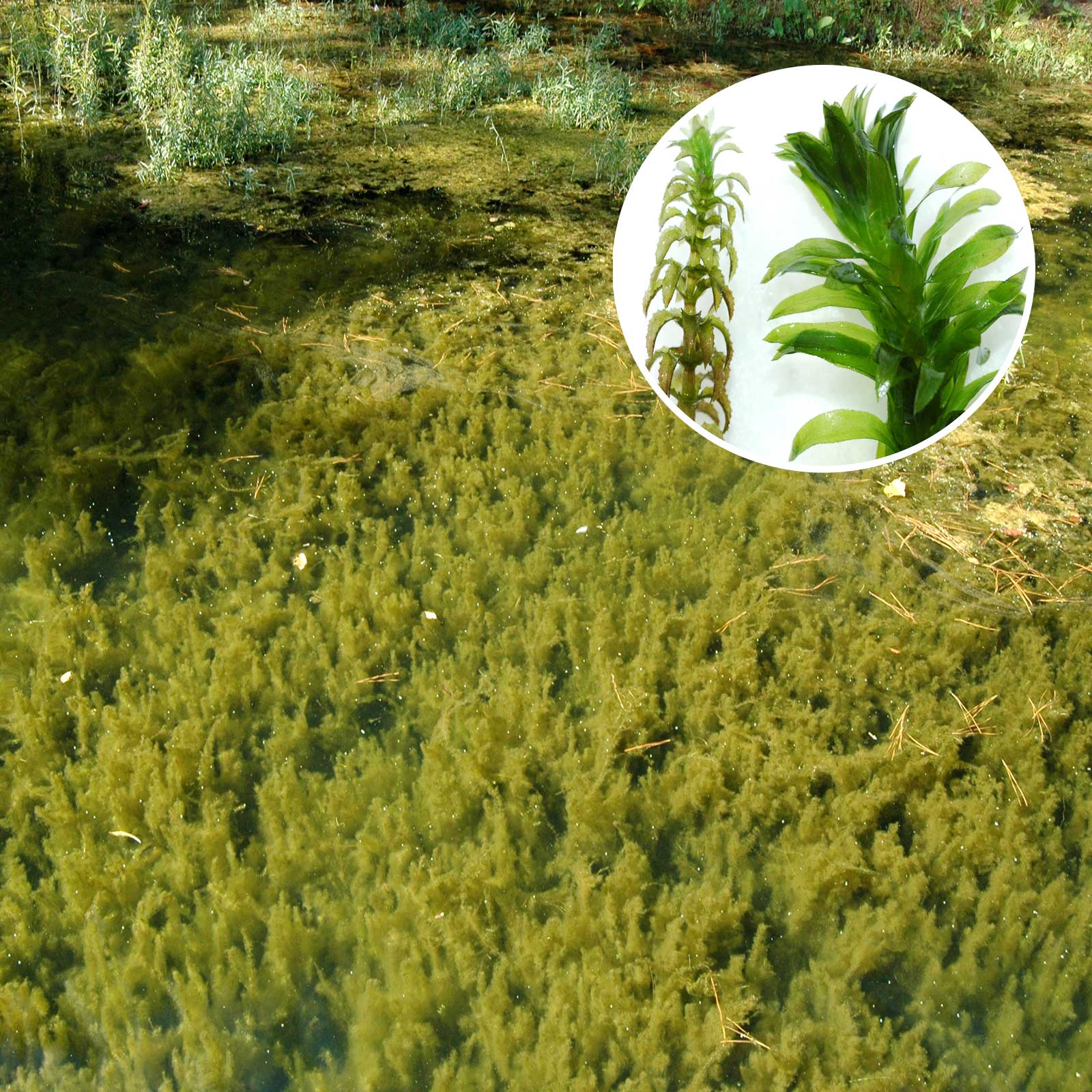
Water Meal
Native Weed
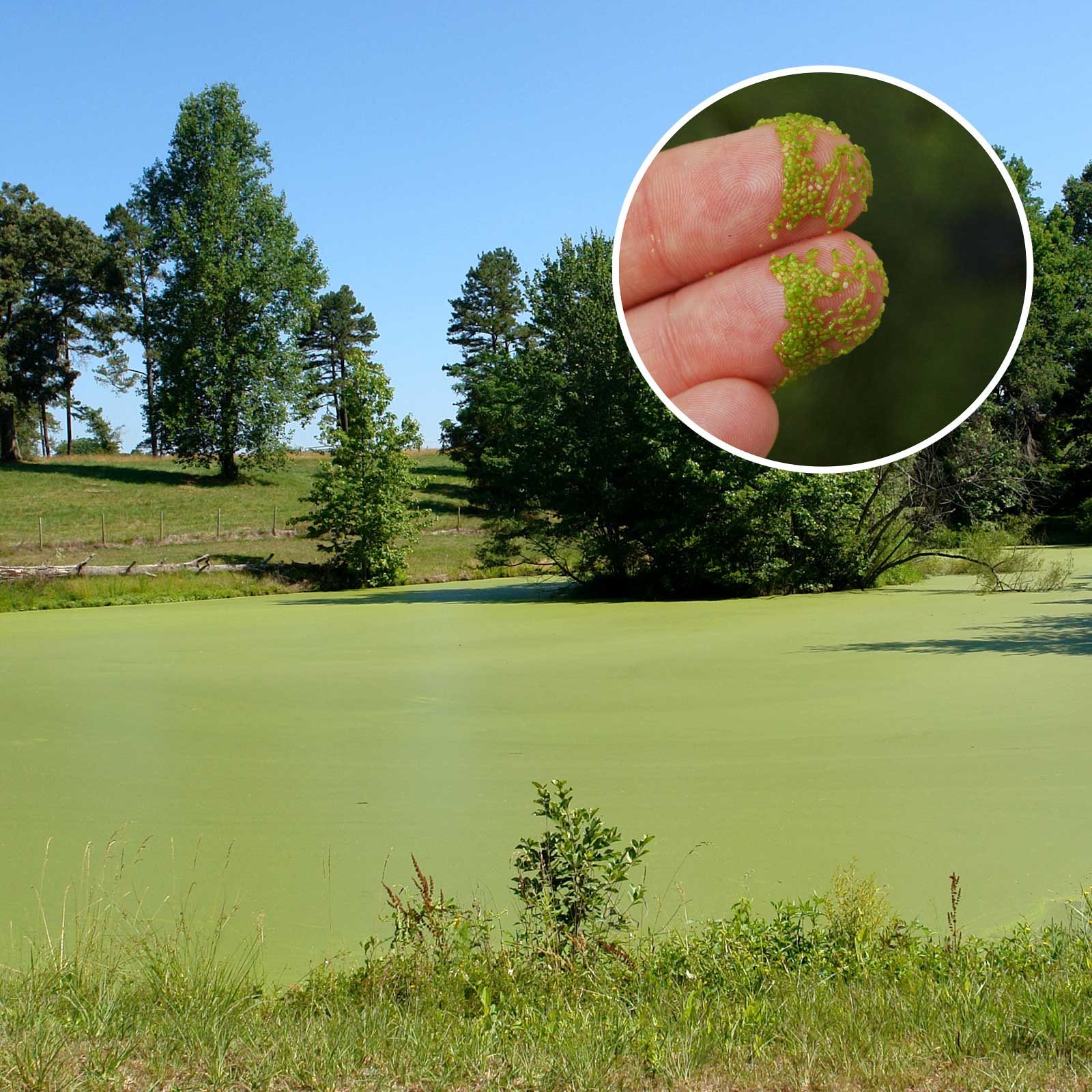
Bio Film
Dead vegetation that floats to the surface
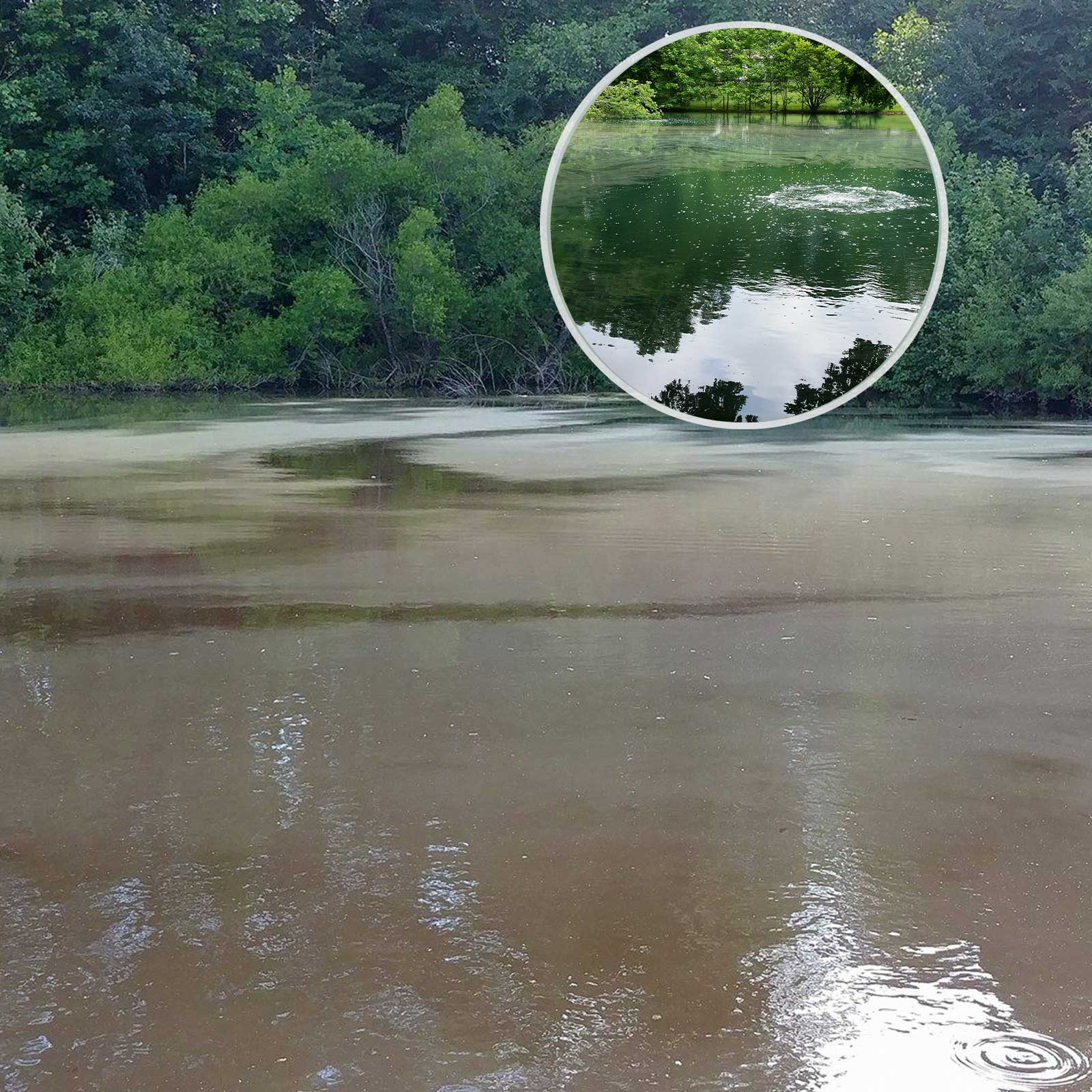
Common Duckweed
Small free-floating plant
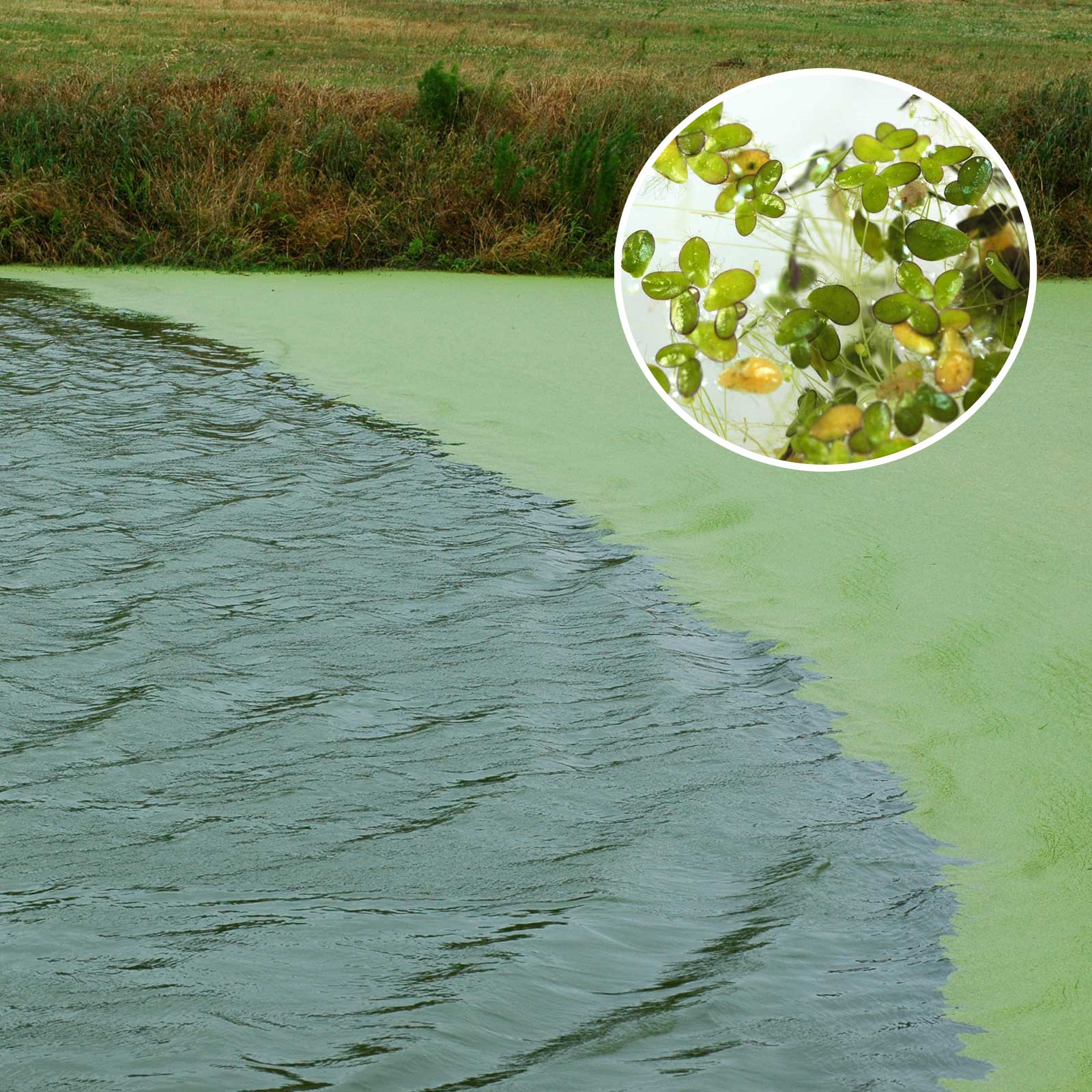
Cattail
Perennial, stout rhizomes & erect stems
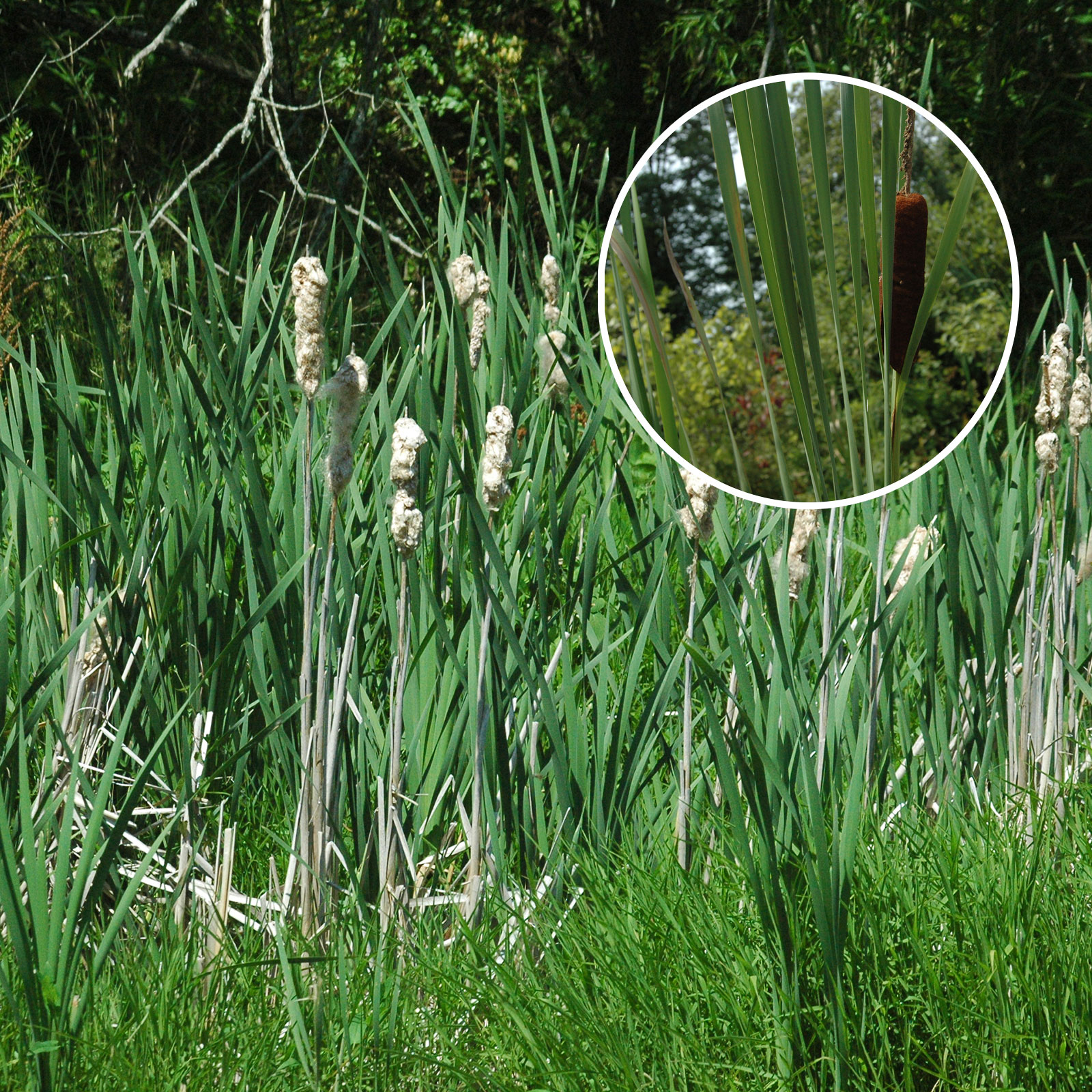
Planktonic Algae
Planktonic Algae makes the water appear dyed
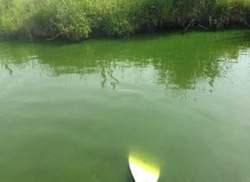
If you’re unsure about the weeds in your pond, reach out to the pond care experts at Pond Lake Management for a Pond Maintenance plan. You can also call the North Carolina Aquatic Weed Control Program or your local Agricultural Extension office.
Best Practices for Using Herbicides
When implementing chemical control, follow these tips for maximum success:
- Read the Label Carefully: Always follow the manufacturer’s instructions for dosage and application.
- Target Early Growth: Apply herbicides during the early growth stages to prevent weeds from establishing dense root systems.
- Test Water Quality: Check the pH, water hardness, and temperature to ensure optimal herbicide performance.
- Avoid Overapplication: Using too much herbicide can harm fish and other aquatic species. Balance is key.
- Repeat as Needed: Depending on the weed and herbicide, you may need multiple applications throughout the year.

Download our Pond Algae & Weed Id Guide
Additional Methods for Controlling Pond Weeds and Algae
While herbicides are effective, combining them with other control methods can provide longer-lasting results:
- Biological Control: Introduce sterile grass carp to help manage weeds like Hydrilla, Grass Carp feed on vegetation.
- Physical Removal: Though labor-intensive, manually removing weeds from the water can complement chemical treatments.
- Regular Maintenance: Prevent excessive nutrient runoff by reducing fertilizer use near ponds to limit weed growth.
Get Expert Help for Your Pond
Managing aquatic weeds can feel overwhelming, but you don’t have to do it alone. Consider a Pond Maintenance Plan or the North Carolina Aquatic Weed Control Program offers technical assistance, plant identification, and treatment recommendations. By collaborating with experts, you can create a tailored plan to control weeds effectively.
Control Weeds and Keep Your Pond Healthy
Aquatic weeds are a persistent challenge, but with the right pond maintenance plan, they can be controlled. Chemical treatments offer an efficient solution when applied safely and correctly, and combining chemical treatments with biological or manual solutions to control pond weeds and algae can help you maintain your pond’s visual appeal. Regular pond maintenance will help protect your pond and minimize the continued growth of weeds and algae.
Need help choosing the right herbicide or building a treatment plan? Call the Pond Management experts at Pond Lake Management today for help with controlling weeds and algae growth.
A healthy, weed-free pond is within your reach!
Where can I buy Grass Carp for my pond?
How do I identify the weeds that are growing in my pond?
Should I install a Fountain or Aerator to to help control my weed problem?
Where Can I purchase Pond Chemicals?
You can purchase most pond chemicals in our eCommerce store.



